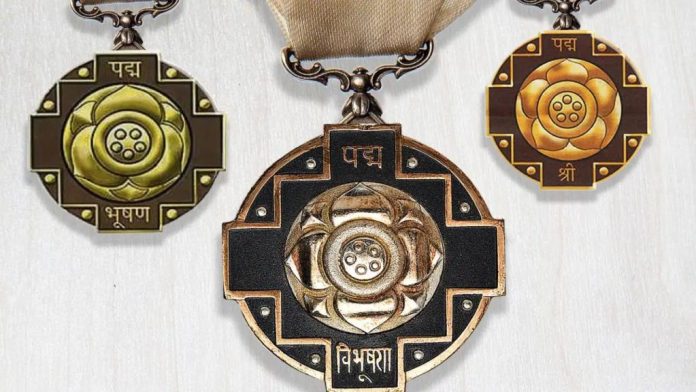Context
-
The Padma awards were announced on January 25, and former West Bengal Chief Minister Buddhadeb Bhattacharjee refused the award. His refusal brought to the fore the question under what circumstances a recipient can decline the award.
About Padma Awards
- After Bharat Ratna, Padma awards are the second highest civilian awards in the country and are given in three categories.
- It recognises achievements in public service in the field of art, social work, public affairs, science and engineering, trade and industry, medicine, literature and education, sport and civil services, among others.

Credit: The Federal News - The awards, initially known as Padma Vibhushan and then categorised as Pahela Varg, Dusra Varg and Tisra Varg, were first constituted in 1954.
- They were later renamed as Padma Vibhushan, Padma Bhushan and Padma Shri in 1955.
- The Padma Vibhushan is given for exceptional and distinguished service, while the Padma Bhushan and the Padma Shri are for distinguished service of a high order and distinguished service respectively.
- The awards are always announced a day before the Republic Day celebrations.
- The awards are given away by the President at ceremonial functions held at Rashtrapati Bhavan usually in the months of March-April every year.
- The awards are given in certain select categories which include Art, Social Work, Public Affairs, Science & Engineering, Trade & Industry, Medicine, Literature & Education, Civil Service and Sports. Awards are also given for propagation of Indian culture, protection of human rights, wildlife protection among others.
- The PADMA Awards Were instituted in 1954 along with Bharat Ratna. At that time only Padma Vibhushan existed with three sub-categories – Pahela Varg, Dusra Varg and Tisra Varg.
- These were subsequently renamed as Padma Vibhushan, Padma Bhushan and Padma Shri vide Presidential Notification issued on January 8, 1955.
- During the years 1978 and 1979 and 1993 to 1997, Padma awards were not announced.
- The awardees do not get any cash reward but a certificate signed by the President apart from a medallion which they can wear at public and government functions.
- A Padma awardee can be given a higher award only after five years of the conferment of the earlier award.
- Not more than 120 awards can be given in a year but this does not include posthumous awards or awards given to NRIs and foreigners.
- The award is normally not conferred posthumously. However, in highly deserving cases, the Government could consider giving an award posthumously.
Who decides the awards?
- The awards are conferred on the recommendations made by the Padma Awards Committee constituted by the Prime Minister every year.
- It is headed by the Cabinet Secretary and includes the Union Home Secretary, the Secretary to the President and four to six eminent persons as members.
- However, the names of the eminent members of the committee are not revealed.
- Even the names nominated and shortlisted by the committee are revealed after the awards have been announced.
- Even self-nomination can be made to the committee.
- The recommendations of the committee are submitted to the Prime Minister and the final list is signed by the President before it is notified in the Gazette of India.
Who is eligible for Padma awards?
- All persons without distinction of race, occupation, position or sex are eligible for these awards. However, government servants including those working with PSUs, except doctors and scientists, are not eligible for these awards.
- The award seeks to recognise works of distinction and is given for distinguished and exceptional achievements or service in all fields of activities and disciplines.
- According to Padma awards selection criteria, the award is given for “special services” and not just for “long service”. “It should not be merely excellence in a particular field, but the criteria has to be ‘excellence plus’.
Can a recipient decline the award?
- The rules are silent on this.
- There is no such rule to refuse the award once it has been announced.
- The convention is that the Home Secretary calls up each awardee and informs them of the civilian honour on January 25.
- The individual has the option of declining the award then, following which the name is removed from the list before it is sent to the President for approval.
What does the award entail?
- At the ceremonial function held at the President’s House in Delhi, the recipients are presented a ‘Sanad’ (certificate) signed by the President and a medallion.
- A small replica of the medallion is also given to them which can be worn during any ceremonial or State function.
- The award does not amount to a title and cannot be used as a suffix or prefix to the awardees’ name.
Source: TH & IE
Visit Abhiyan PEDIA (One of the Most Followed / Recommended) for UPSC Revisions: Click Here
IAS Abhiyan is now on Telegram: Click on the Below link to Join our Channels to stay Updated
IAS Abhiyan Official: Click Here to Join
For UPSC Mains Value Edition (Facts, Quotes, Best Practices, Case Studies): Click Here to Join
